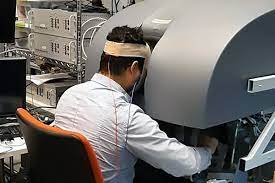
Breaking News
 Hillary Clinton Breaks With Party Line, Admits Mass Migration Is "Disruptive & Destabilizing
Hillary Clinton Breaks With Party Line, Admits Mass Migration Is "Disruptive & Destabilizing
 Media Freedom…if We Can Keep it!
Media Freedom…if We Can Keep it!
 A Weird Obsession - and a Strange Duality
A Weird Obsession - and a Strange Duality
 Debt, Inflation, and the Illusion of Protection
Debt, Inflation, and the Illusion of Protection
Top Tech News
 New Spray-on Powder Instantly Seals Life-Threatening Wounds in Battle or During Disasters
New Spray-on Powder Instantly Seals Life-Threatening Wounds in Battle or During Disasters
 AI-enhanced stethoscope excels at listening to our hearts
AI-enhanced stethoscope excels at listening to our hearts
 Flame-treated sunscreen keeps the zinc but cuts the smeary white look
Flame-treated sunscreen keeps the zinc but cuts the smeary white look
 Display hub adds three more screens powered through single USB port
Display hub adds three more screens powered through single USB port
 We Finally Know How Fast The Tesla Semi Will Charge: Very, Very Fast
We Finally Know How Fast The Tesla Semi Will Charge: Very, Very Fast
 Drone-launching underwater drone hitches a ride on ship and sub hulls
Drone-launching underwater drone hitches a ride on ship and sub hulls
 Humanoid Robots Get "Brains" As Dual-Use Fears Mount
Humanoid Robots Get "Brains" As Dual-Use Fears Mount
 SpaceX Authorized to Increase High Speed Internet Download Speeds 5X Through 2026
SpaceX Authorized to Increase High Speed Internet Download Speeds 5X Through 2026
 Space AI is the Key to the Technological Singularity
Space AI is the Key to the Technological Singularity
 Velocitor X-1 eVTOL could be beating the traffic in just a year
Velocitor X-1 eVTOL could be beating the traffic in just a year
Head zaps help surgeons transfer skills from VR to IRL

In addition to training better future surgeons, the approach could help skill acquisition in other industries.
Motor learning allows us to develop new skills, like mastering a tennis serve or, in the case of a surgeon, developing precision suturing skills. These days, surgeons are likely to learn these types of skills in a virtual reality (VR) environment before they transition to the real world.
Researchers at Johns Hopkins University in the US have developed a method of improving how medicos learn surgical skills in a virtual environment so that their learned skills are transferred more effectively to a real-life scenario.



